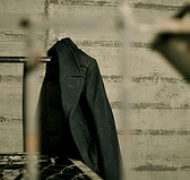Between the Robes
Blog / Produced by The High Calling
I didn’t hear much about Joseph’s second robe as a kid. I can picture the first on early flannel graphs and take-home Sunday school papers, and I remember the Technicolor version, but the second? What second?
Maybe it’s because the first was bright and alluring, like a forbidden fruit. We do seem to be intrigued by temptation tales. Or maybe because it represents the ominous beginning of a story with a good ending, in which case it’s the prompt that says this tale is worth hearing again.
But I’m older now and need to hear more of the second robe. It’s the closing bookend in Joseph’s growth and a symbol of God’s slow, deliberate work. In fact, the second robe has encouraged me to ask two very important questions, ones that Chuck Swindoll also inspired me to ask, both fitting especially for tough times: How has God humbled me? and How has God trained me?
Humbled
The journey toward humility is common to all of us. In work alone, difficult co-workers, misdirected accusations, down-sized programs, challenging projects and low support interrupt our self-reliance, pushing us to depend upon God again, or maybe for the first time.
In Joseph’s case, the LORD made good use of the brothers’ betrayal. The enslavement, public sex scandal and years of imprisonment, too, deflated his swelled head. And what better than a strong dose of humility when our dreams envision the sun, moon and stars bowing down before us (37:9)? In the end, those hard years for Joseph amounted to a long removal of his first robe.
Trained
That both Potiphar and the jailer noticed Joseph’s abilities suggests that his brothers had more reason for jealousy (Genesis 39:3) than merely their father’s doting. Joseph was naturally talented, and they saw this. But talents and immaturity couldn’t occupy the same space without causing trouble. Sorting them out would require time and God knew what he would need from Joseph once he matured.
In the meantime, I doubt Joseph ever thought, “Boy, this is good career training.” Yet part of the sorting and training regimen was giving Joseph responsibilities like supervision in the jail and management over Potiphar’s house. Becoming chief administrator over Egypt in the years of plenty and famine couldn’t happen without a resume, so even before a humble spirit was in order, Joseph received these smaller yet significant projects. (Personally, if I lost more than a decade of prime years to a life I never wanted, I’d struggle to consider that my work mattered at all.)
By the time Joseph stood before Pharaoh – nearly thirteen years of hardship later – he had been stripped. Shrunk. Diminished to human size. His attribution of praise to God in Genesis 41:16 indicates that he was finally ready to wear something new. “I cannot do it, but God will…,” he said, and Pharaoh gave him the new robe. Now this tempered young man could be paraded through the streets, adorned and able to receive the praises of Egypt without it going to his head.
Between robes
Joseph couldn’t have known why he had to be humbled or what profit, if any, would come of his labor, but he showed patience. He did well along the path, and God used this long refining journey to save Israel from its oppression.
How has God humbled me? How has God trained me? Reflection on these questions can be difficult when I’m currently in a prison of this or that sort. But, then, even a high calling is characterized by lows. And we know Joseph asked these questions, too, for despite his lows, he named his second son Ephraim: God has made me fruitful in the land of my suffering.
Questions for personal reflection, online discussion, or small groups:
- Have you asked yourself these two questions?
- How would you have counseled Joseph during those years, having had no idea where God was taking him?
- How do you encourage your coworkers, neighbors or family members who are “between robes”?
Image by Chris JL. Used with permission via Flickr. Post by Sam Van Eman.





